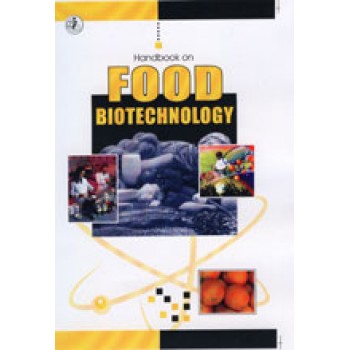Handbook on Food Biotechnology
| Price: | Rs.1,100.00 |
Detail Of Handbook on Food Biotechnology
| ISBN | 8186623957 |
| Pages | 592 |
| Language: | English |
| Product Code: | 1 |
| Size(in cm): | 21*13.5 cm |
| Weight(in grams): | 500(approx) |
Description:
Biotechnology has a long history of use in food production and processing. Food biotechnology is a process scientists use to enhance the production, nutritional value, safety, and taste of foods. It can also benefit the environment by improving crops so that they need fewer pesticides. The potential benefits of biotechnology are enormous. Food producers can use new biotechnology to produce new products with desirable characteristics. This concept is not new: For centuries farmers have selectively bred plants to pass on desirable qualities. This process selected desirable genes and fixed them by growing the seeds of the selected crop year after year. Modern food biotechnology is a refined version of this same process. Today, scientists obtain desired traits by adding or removing plant genes. It yields foods that are flavorful, contain more vitamins and minerals, and absorb less fat when cooked, and gives us crops that are more resistant to pests and insects. Food biotechnology holds great promise for the future. Soon, fruits and vegetables may be made to resist drought. We may remove allergens from foods such as nuts. Scientists may develop plants that absorb nitrogen more efficiently and need less fertilizer. The benefits are nearly limitless. In this present age, global food demand has increased the need for improved crops. Biotechnology offers the needed technology to produce higher crop yields, plants that are naturally protected from disease and insects, and potentially more nutritious and better tasting foods. The growing global demand for biotechnology products, India has rich biodiversity that drives its clinical trials industry and forms a strong base for pharmaceutical research. In recent years, the worldwide biotechnology based products market has grown at an annual average rate of 15%.
This book basically deals with fermenter and bio reactor design, development and testing of a milled shea nut mixer, process development for production of pure apple juice in natural colour of choice, development and evaluation of low cost coffee pulper, improvement of the processing properties of crops by genetic engineering, effects of chemical, genetic and enzymatic modifications on protein functionality, protein recovery processes: non-fermentation feed stocks, studies on bitterness development in kinnow juice ready-to-serve beverage, squash, jam and candy, prospects for incorporation of defatted mucuna flour in biscuits formulation etc.
The present book is an attempt towards the entrepreneurs to motivate them to invest in organic farming and processing in sophisticated manner by application of Bio-technology. It is hoped that this book will be very useful for existing as well as new entrepreneurs, researchers, technocrats, institutional libraries etc.
Reviews (0)
Write a review
Your Name:Your Review:
Note: HTML is not translated!
Rating: Bad Good
Enter the code in the box below:
Recently Viewed



 |
| 
